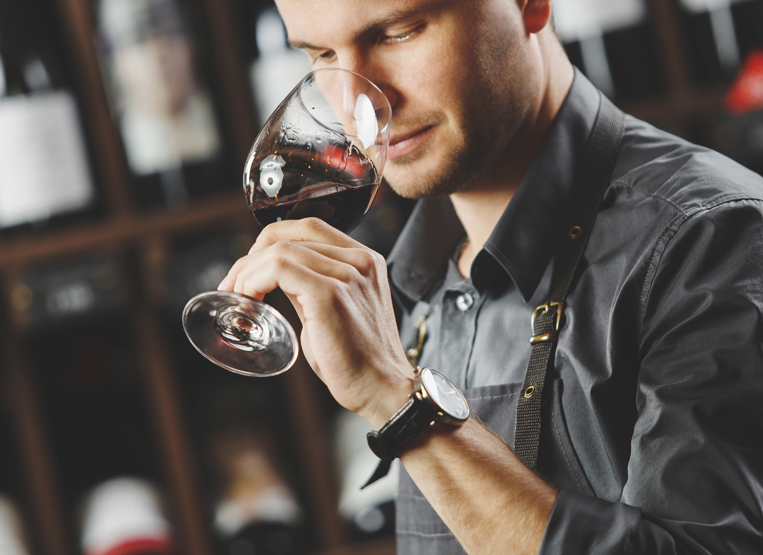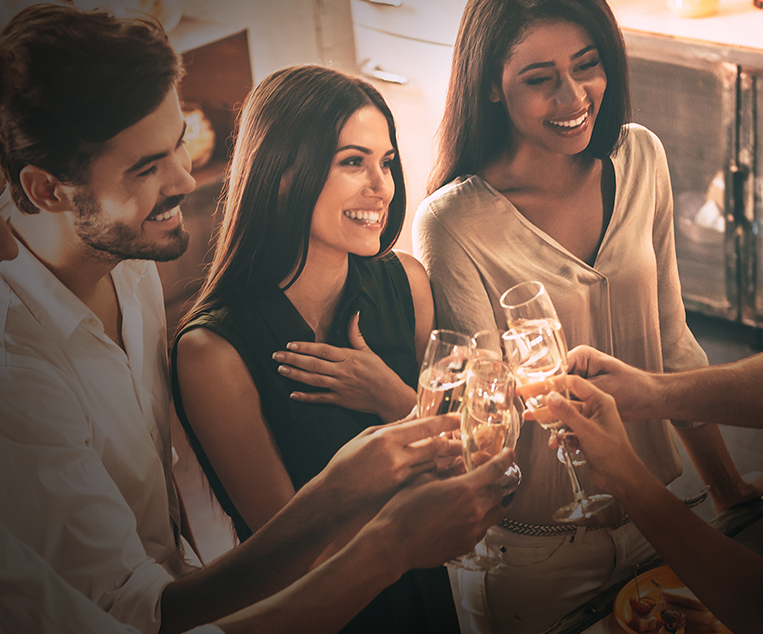
Tasting can be associated with different products and situations. It may, for instance, make one think of supermarkets stands offering samples of products to customers rushing around with their trolleys. Fortunately, wine tasting is different: it is a conscious and deliberate process that takes time. What matters above all is a thoughtful assessment and a subjective, sensual experience that can be a source of great pleasure. It is, therefore, important to ensure the quality of this experience, especially given that it involves something as beautiful and sensual as wine.
What is important in wine tasting?
This may not sound not too revealing, but the most important element is wine itself. A conscious approach to tasting is of the essence, as its subsequent stages are to allow you to answer one crucial question: what do I like? By definition, tasting is a research process aimed at describing and assessing the quality of wine. Not only for sommeliers and wine tasters, but also for journalists, chefs and merchants, tasting is part of the job. However, anyone can learn to taste wine. All you need to do is take your time, create the right conditions and develop your tasting experience step by step. Over time, you can learn not only to assess and describe, but also to better understand wine: to distinguish between different grape varieties, to notice differences in their style and quality, and to appreciate the talent of the winemaker and the value of the vineyard. Every detail and aspect – both natural and cultural – matters, as wine is a complex product, the combined result of natural processes and human work. Let’s start with the basics, that is, the tools and rules of wine tasting.
What does itsmell like?
You need wine, some water, a glass and a notepad to write down your impressions. Good light will be useful, a natural, preferably white background to assess the colour and an odour-free space that is not too warm. Finally, the most important tool: the taster him/herself with a mind open to new sensations. It takes time to train your senses, so your condition and the circumstances that affect your mood are paramount. It is preferable to have someone to talk to during wine tasting. After all, nothing compares to good company, and wine is conducive to social contact and dialogue. Sharing one’s opinions and feelings with a more experienced tasting companion is inestimable, as it allows you to describe your sensations in a more objective manner. You also need a spittoon. Although it may not sound very appealing, wine is spat out after being tasted. Specialists rightly note that there are no taste buds in the stomach. Furthermore, the state of intoxication is not conducive to any objective evaluation that tasting is all about. Sobriety and the presence of mind during wine tasting should be taken quite seriously.
The eyes, the nose and the mouth – tasting with one’s senses
Always hold the glass by the stem: you will look like you know what you’re doing, and the wine will maintain the right temperature for longer. Slowly pour a small amount of wine, less than 100 ml, into a glass. Tilt the glass and examine the colour, the concentration and density of the wine against a white background. Pay attention to the sediment, tears that form on the glass and any gas bubbles that may appear. Jot down your impressions, and you can consider the visual assessment done. Now, it is time to smell the wine. First, try to discern subtle primary aromas. Don’t be discouraged if they are unpleasant, or if you cannot recognize them at all. Swirl the wine vigorously to aerate it and focus on the aromas. Write down any associations that spring to mind. Finally, the last step: the tasting. At this stage, you unconsciously employ three senses: taste, smell and touch. This is why it is worth repeating this step. Give yourself time to evaluate the balance between acidity and sweetness, subsequent aromas released on the palate, as well as the texture and the weight of the wine. Summarize your impressions by assessing the consistency of the wine and, most importantly, decide whether you like its taste.
In a goodcompany
Such analysis really opens one’s eyes and, in time, also trains one’s nose. It allows you to really feel the wine, to get to know and understand it better, which in itself is a source of great pleasure. If we are to learn something from tasting, it must be comparative. Try at least two or more wines selected according to a key, for instance, representing a particular variety, region or producer. For it is not only wine, but also people who stand behind it (producers) and your tasting companions (consumers) that count in the tasting process. It is important to make sure you engage in wine tasting in good company, as you will be able to discuss the wines you taste with someone equally interested in the subject. It may prove very instructive.
Good luck!
Marcin Zatorski

